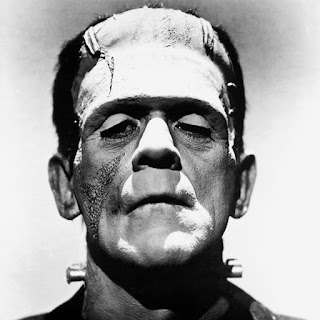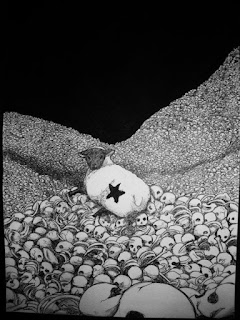The Gothic Genre and Frankenstein

It’s easy to see how Mary Shelley’s Frankenstein is always referenced when discussing gothic literature. Cited as the beginnings of the science-fiction genre, it carries elements of the Gothic and Romantic movements of the era. For example, one of the novels most prominent themes is secrets, which is at the heart of any gothic story. The protagonist, scientist Victor Frankenstein, discovers the secret of bringing inanimate objects to life. He performs his research in the dead of night away from everyone, due to its dubiously ethical nature and ideological conflict with his peers. The procedure is finally performed in the dead of night after Victor has locked himself away from weeks on end. When he deems the creature he brought to life and abomination, this secret eats away at his mind. The guilt for what he is done and the monster’s actions drive him further into isolation, which is also a popular trope in the genre. To add, Victor never reveals to the reader what the secret to reanimation is. While he affirms that his work is purely scientific, the lack of explanation and discussions of alchemists such as Agrippa and Paracelsus lend to a more supernatural atmosphere to the monster’s creation (another popular gothic trope).
On the subject of atmosphere, Frankenstein’s is drenched in suspense and mystery: the signature feature of the gothic genre. While we aren’t necessarily in a creepy house on haunted hill, nature itself influences Victor’s perception and mental state, which alters the mood of the story greatly. When Victor is away from nature, such as in his apartment while at university, the story takes on a much more tense and suspenseful atmosphere. When torn from nature, he is shown to be depressed on guilt-stricken to the point of illness several times. Only when he returns to it does his mental state improve, and the suspenseful atmosphere is somewhat relieved. The monster, when recounting his story, has a similar relationship. In the dead of winter, the monster is cold, hopeless, and lost. However, he gains a sense of childlike wonder at the arrival of spring. Unfortunately, the monster only adds to the uneasy atmosphere for Victor, as he constantly pursued by the monster at every turn. Even at Victor’s happiest moments in the novel, it is constantly dragged down by the watchingful eye of the creature eating at Victor’s thoughts. Interestingly, the monster almost acts as both a visible and invisible evil in the novel. Victor is aware of it appearance, but the reader is only told that it is horrific. The reader has no idea what the creature actually looks like, and it is left up to their imagination. In addition, even if the monster is not physically there, the idea of its presence alone is enough to drive Victor away from everything he loves.


Comments
Post a Comment